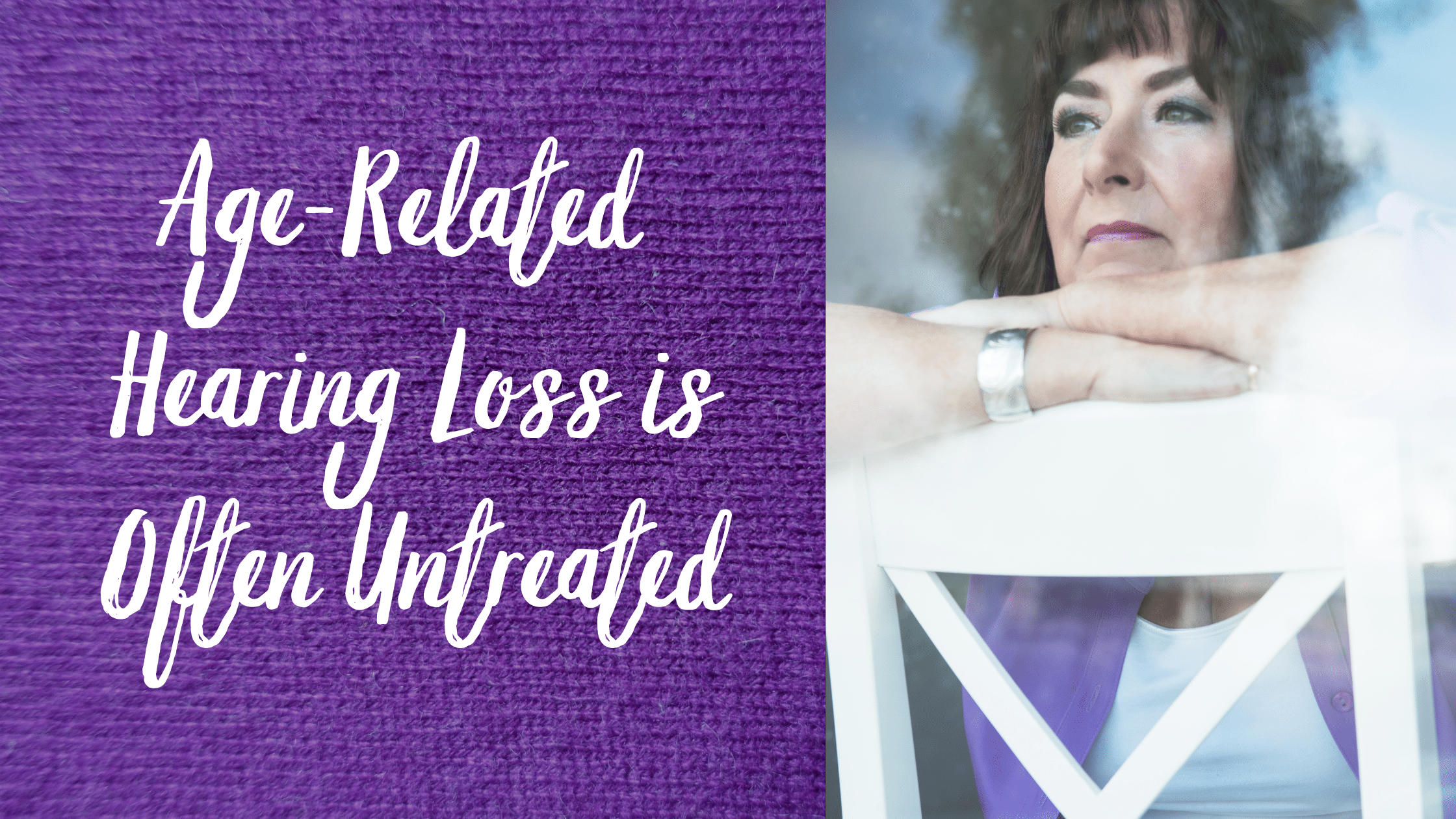Over 48 million Americans today suffer from some degree of hearing loss. While some people are born with hearing loss and grow into deaf culture, the vast majority of hearing loss is acquired, and age-related hearing loss is by far the most common form of debilitating hearing loss. It affects nearly half of those aged 70 and over, and nearly 100% of centenarians have hearing loss, suggesting that if we live long enough, everyone will eventually have it.
Still, only 1 in 5 people with hearing loss currently treat it with hearing aids. On average, people wait seven years from the time they start noticing that hearing loss is causing problems to the time they get their hearing tested and get hearing aids. These statistics have remained stable for over 40 years, but hopefully they can change going forward.
Hearing Loss Creates Health Concerns
While many of us once thought of hearing loss as an unfortunate but benign aspect of getting older, multiple studies conducted in recent decades have shown that the problem is much worse than that. Indeed, some of the effects of hearing loss are frequently mistaken for separate age-related issues, when in fact a set of hearing aids would help alleviate them.
Untreated hearing loss tends to make socializing so unpleasant that we tend to shrink from it. Indeed, loneliness and depression are common side-effects of untreated hearing loss which lead to social isolation when the problem continues. Untreated hearing loss also affects our sense of balance, leading to increased injury due to falling down and less frequent outdoor activities. It’s a shame that so many people see their lifestyles turn away from social interaction and physical activity due to hearing loss when a set of hearing aids could keep them enjoying life as they always have.
Hearing Loss Changes the Brain
Even in cases of mild hearing loss, studies involving MRIs have shown that the frontal cortex is more active in interpreting speech than in people with normal hearing. What does that mean? It means that the auditory cortex, which is usually responsible for interpreting speech and committing it to short-term memory, is becoming less active as hearing loss sets in, while the frontal cortex picks up the slack. Immediately, this makes us more fatigued and more forgetful than if we were hearing to the best of our ability.
Over time, the auditory cortex will actually atrophy, and we lose the ability to comprehend speech even when we hear it clearly. This is why it takes some people so long to adjust to hearing aids. If a person’s hearing loss has been left untreated for a long time, they will need to relearn how to hear spoken language once hearing aids make it possible to hear it again.
Hearing Aids Improve Relationships
Many hearing aid wearers report that hearing aids have helped them to strengthen their relationships with family and friends. This makes sense, doesn’t it? As hearing loss sets in, conversation becomes more difficult even with long-term partners, so we start minimizing conversation only to the most important communications. We lose out on much of the joy of small, daily interactions that bring us closer to the people in our lives.
How Do You Know You Have Hearing Loss?
Most people learn they have hearing loss when someone else tells them they do. Because hearing loss means that many sounds in our environment will simply go unnoticed, it takes having someone there who is hearing normally to point out the sounds we’re missing. As hearing loss progresses, we start to notice more and more difficulty understanding people when they speak, and eventually it becomes unavoidable for us to recognize that we’re having trouble hearing.
While most people wait until this point to get hearing aids, we can do ourselves a big favor by starting to treat our hearing loss well-before we get to this point. Rather than having to retrain our brains to hear properly again, hearing aids worn at the earliest recommendation will help keep our brains and bodies in the best shape possible. Monitoring your hearing health is an important part of maintaining your overall physical and mental well-being, so don’t put it off!
Get Your Hearing Tested Regularly
The Better Hearing Institute, a non-profit organization, recommends getting a hearing test once every decade until age 50 and once every three years after that. This allows hearing loss to be detected before it becomes problematic so you can make changes in your life to minimize further hearing loss. Early detection of hearing loss that progresses unusually quickly could even save your life: it can be an early indicator of an underlying cardiovascular condition.

